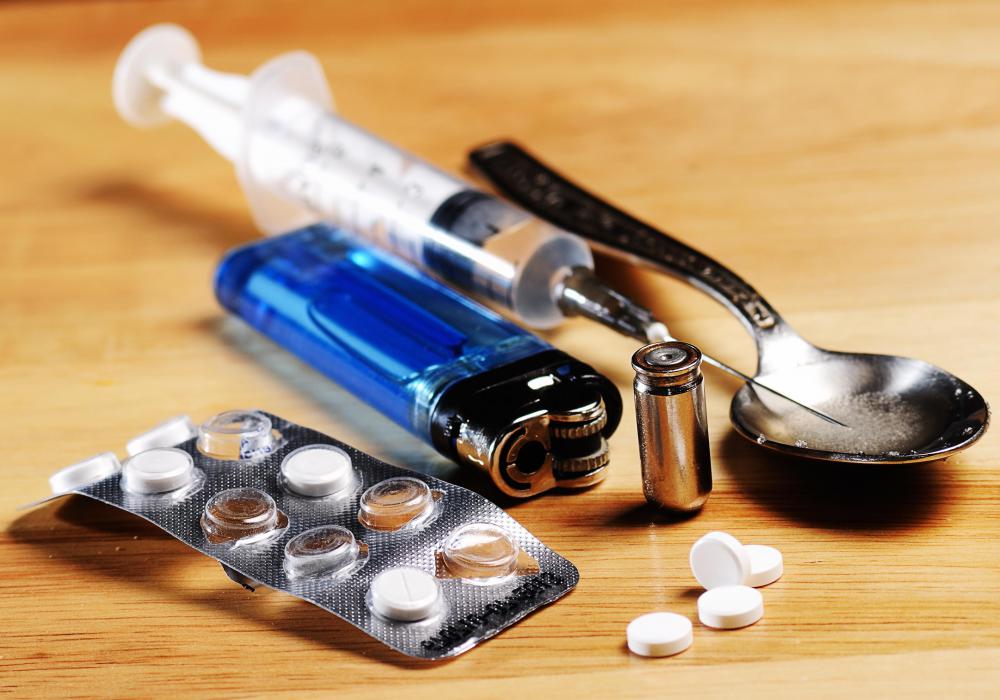At TheHealthBoard, we're committed to delivering accurate, trustworthy information. Our expert-authored content is rigorously fact-checked and sourced from credible authorities. Discover how we uphold the highest standards in providing you with reliable knowledge.
What is a High Pulse Rate?
The pulse rate is the rate at which the heart is beating. In most cases, the pulse is measured by how many beats the heart produces in one minute increments. Normally, the average pule rate for an adult is between 60 and 100 beats per minute. When the heart rate exceeds 100 beats per minute, the person is said to have a high pulse rate, which may also be known as tachycardia. There can be numerous different causes for an elevated heart rate. A temporary high pulse rate, may be no cause for great concern, although a sustained high rate can be harmful.
There can be several different causes of a high pulse rate. Sometimes the condition can be caused by a health problem. Heart disease can be the cause of a medically induced high heart rate. In addition, some thyroid disorders may also cause this condition. For instance, hyperthyroidism is an example of a condition that may cause an individual to have a higher than normal pulse rate. Additional medical causes may be attributed to a blood disorder such as anemia, an abnormally low blood pressure, infection and dehydration.

Certain medications can also cause a heightened pulse rate. Decongestants frequently used to treat the common cold can cause this to happen. For this reason, doctors often advise patients with certain heart conditions to forgo taking over-the-counter decongestants and cold medicines. Asthma medicines can also be factors. Occasionally, consuming too much caffeine and drinking an excessive amount of alcohol can also cause the pulse to rise.

One of the most benign causes of a high pulse rate is excessive activity. Exercise is the most common form of activity to increase the pulse rate. Even a moderate amount of activity can place enough stress on the heart to increase the number of beats it must take per minute. For example, a brisk walk can cause an increase in pulse rate.
The symptoms of a high pulse rate can vary. Some people may be able to feel their heart beating at a rapid rate. The sensations of a racing, forceful or pounding heartbeat are medically known as palpitations. If the heart starts to beat excessively fast, more serious symptoms may arise. As the rate climbs, some people develop shortness of breath, have chest pain, become lightheaded and dizzy. One of the most threatening complications of an extremely high pulse can be fainting.

Individuals with an exceptionally high pulse rate should be taken to an emergency room for a medical evaluation. Doctors may perform a manual pulse test first to get a general idea of how fast the heart is beating. Next, the person may undergo a number of cardiovascular tests to properly diagnose the cause of the elevated rate. An electrocardiogram (EKG) may be the first diagnostic test. Depending on the results of the initial test, other cardiovascular exams may follow.
AS FEATURED ON:
AS FEATURED ON:

















Discussion Comments
@Feryll - High pulse rates and other changes in the body are common when we get nervous, excited or angry. As this article says, when your pulse rate stays high for long periods that's when you should become concerned, and get to a doctor.
Every time I go to a doctor, my blood pressure goes through the roof and my hear rate increases. I get anxious when they start taking my readings because I know the numbers are going to be high, and this makes the readings go even higher.
This isn't a problem now that I have a regular doctor who knows my situation, but when you go to a doctor or dentist for the first time and try to explain what is happening, they think you are just making an excuse because you don't want to be seen as unhealthy or don't want to accept reality.
I have a machine at home that measures blood pressure and pulse rate, so I use that before I go to the doctor and then I let him know how my readings have been the previous week.
My pulse rate is about 60 beats per minute. I have always been pretty active and play a lot of sports. However, when I get nervous my heart beats faster and my pulse rate really increases.
I went on a double date with a friend and his girlfriend and the friend of his girlfriend when I was in high school. My date was really pretty and smart, and I didn't have much dating experience at the time, so I was sweating bullets.
At some point during the evening, my date leaned against me and she could feel my hear pounding. She thought I was about to have a heart attack. It took me a while to convince the three of them I didn't need to go to the hospital. I made up some story about how I drank several sodas earlier and that had increased my heart rate. I don't know how much of my story they believed, but they finally let the high pulse rate go, and we finished the evening.
Post your comments